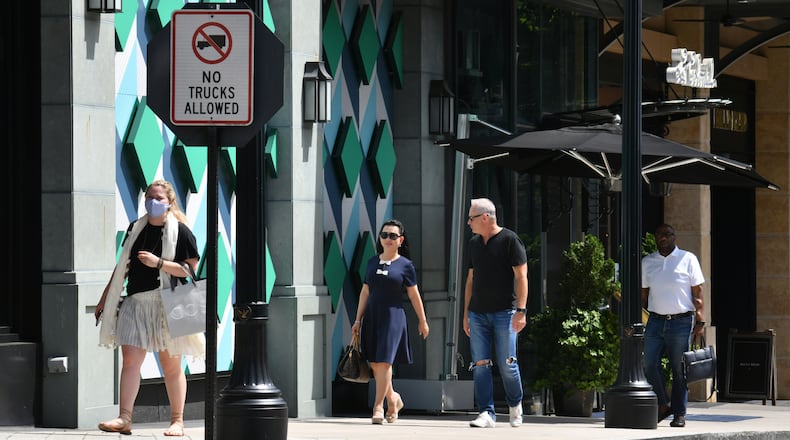A study funded by those who oppose Buckhead cityhood has found that a split from Atlanta would increase tax rates on residents of both cities, siphon revenue away from the capitol city’s coffers and create needless competition.
Atlanta would lose between $80 million and $116 million in annual net revenues if Buckhead incorporated, according to the study commissioned by the Buckhead Coalition, an influential business group that has not favored the cityhood plan.
The study found the loses are even higher for Atlanta Public Schools, which stands to lose $232 million.
This report rivals the state-mandated Buckhead City Committee’s study released earlier this week that did not analyze how the de-annexation would impact Atlanta. That study from the pro-cityhood group is a required step in the state’s process for forming new municipalities.
Buckhead Coalition head Jim Durrett said his group’s study has a better methodology and speaks to the dangerous precedent this may set statewide.
“Other neighborhoods in cities throughout Georgia may suddenly decide to break up key parts of their city. No doubt, it will risk the reputation of Georgia as the best state in the country for business,” wrote Ed Lindsey, co-chair of the Committee for a United Atlanta against Buckhead cityhood and a former state representative whose district included much of Buckhead.
Pro-cityhood group CEO Bill White said in a statement: “This so-called ‘analysis’ is classic doomsday drivel from the usual suspects.”
APS school board Chairman Jason Esteves said the $232 million in net loss is more than 20% of the district’s budget.
He said about 5,500 of students — which is one out of every 10 at APS — live within the proposed Buckhead City boundaries. Beyond that, he said it would reduce the diversity of the majority-Black school district because many of the 20% white and 8% Latino students live in Buckhead.
There’s also the sticky question of how Fulton County Schools would take over APS buildings or their debt since the Georgia Constitution doesn’t let new cities create new school districts.
White did not address those issues when asked about the report, saying: “There are details to work out, of course, but the suggestion that APS would forfeit more than $300M in revenue by electing to not serve Buckhead City is not plausible. We are confident of the legal strategy to maintain APS services for Buckhead City.”
Esteves wasn’t so sure.
“Absent a change in state law and our charter, the typical rule would apply, which is that out-of-district students would attend based on availability, and have to pay tuition,” the school board chairman said.
The study said it is “almost certain” Atlanta and a Buckhead City would see tax rates rise because the newer city is unwilling to stay in Atlanta.
“The result could easily be a race to the bottom with both entities giving away critical financial resources in a zero-sum game of economic development gamesmanship,” according to the report.
But beyond gamesmanship, Esteves said this would draw energy away from students “all for a proposal that is aimed to reduce crime. That’s why the better option is for all of us to work together to tackle the root causes around crime.”
Credit: WSBTV Videos
Trusting News:
The Atlanta Journal-Constitution on Tuesday published a story on the front page about a Buckhead City feasibility study paid for by a group in favor of the movement. Today, the AJC is publishing on the front page a study funded by an anti-cityhood group that looks at the financial impact of such a move on Atlanta and Atlanta Public Schools.
About the Author
Keep Reading
The Latest
Featured




